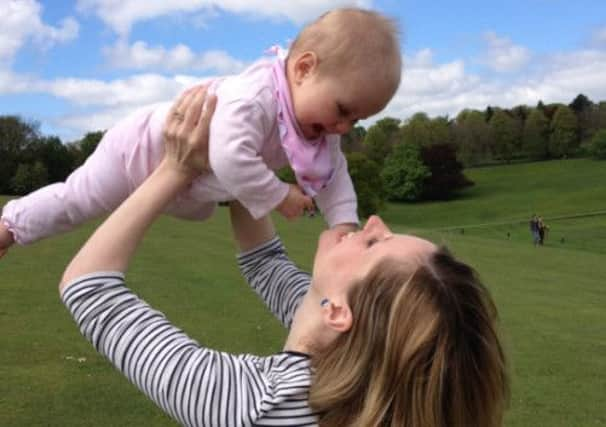Supporting role makes difference


It isn’t that long ago that women were expected to go through labour alone.
Now not only is the husband expected to be alongside, often family members and now doulas are likely to be present.
Advertisement
Hide AdAdvertisement
Hide AdDoulas are women who support other women through pregnancy, they are not medically trained, but they offer help, advice and emotional support to a mother before, during and after birth.
The term doula comes from the ancient Greek meaning “a woman who serves.”
Doulas are no longer to domain of the pampered middle classes. Doula UK says hundreds of doulas are trained every year and the number has quadrupled over the last five years. New training courses are springing up to meet demand and the results appear impressive.
A survey by Doula UK found that where a doula was present, the rate of caesareans halved, while the use of epidurals went down from the national average of 33 per cent to 15 per cent. The presence of a doula was also slashed the number of hours in labour by half.
Advertisement
Hide AdAdvertisement
Hide AdThe Yorkshire-based Fertility and Birth (FAB) Network advocate that every woman currently considering or preparing for pregnancy and birth should have the ability to make informed choices about their wider healthcare options, and that the doula plays an important role in supporting this.
Some see the doula as controversial, and putting pressure on women to avoid medical interventions. But doula Bushra Finch, a member of FAB, has been supporting women through childbirth for over 20 years.
“I started unofficially supporting friends, family and community members and one day a midwife asked how long I’d been a doula. This was when I realised that was what I loved doing and was good at doing, had a name and a career attached and I knew what I wanted to do.”
Over the years Bushra has supported about 75 women and as a Doula UK course leader has supported around 250 women in becoming doulas.
Advertisement
Hide AdAdvertisement
Hide Ad“My role as a doula is to listen to women and their partners and to be there for them in the way they need. While I believe absolutely in a woman’s ability to birth and feed her baby, if she chooses to go down the medical route I will support her in that. My only proviso is that she has had all the information she needs to make the decision that is right for her. I make sure that she knows her rights – if you don’t know you have rights, then you have none,” continued Bushra.
Olivia Bennett, 33, from Leeds believes that every woman could benefit from a doula, either during the birth or the following because they need the one-to-one emotional support that health professionals and hospital staff don’t have time to give.
“A friend recommended a doula after discussing my fears regarding labour. We thought we were unusual in having a doula within our circle of friends, but it was absolutely the right decision.
“Bushra prepared us well, spending lots of time discussing our birth plans. There was no agenda so it was completely up to us as to how we wanted our birth ideally to be. My labour and birth were not straight forward, but having Bushra with us both at home and at the hospital meant my husband and I stayed relaxed knowing there was someone there with a clear head who knew us and what we were hoping for. My husband particularly liked that he could leave the room briefly knowing I had Bushra to rely on. And once our daughter was born, our doula stayed with her at all times when we weren’t in the room.”
Louise Ashley had a doula with her second baby, Sophie.
Advertisement
Hide AdAdvertisement
Hide Ad“I thought a doula would be all about ‘natural birth’ but Vicki was all about me making my own choices. I can’t thank her enough for showing me that I had options, and for helping me to find the one that was right for me.”
Angela Mackenzie is in her first year as a doula and supported first time mother Frances Andrews, 25, from Leeds.
“Angela shared the most intimate and life-changing experience of mine and my husband’s life, she came into our life as our doula and she remains in our lives as our friend,” says Frances.
Practical and emotional help
The month of May is designated around the world as international doula month. The term “doula” was first used in a 1973 anthropological study conducted by Dana Raphael.
Advertisement
Hide AdAdvertisement
Hide AdRaphael suggested it was a widespread practice that a female of the same species be part of childbirth, and in human societies this was traditionally a role occupied by a family member or friend.
Doulas support women and their families during pregnancy, childbirth and early parenthood. This support is practical and emotional but non-medical in nature.
A survey by Doula UK found that where a doula was present, the rate of caesareans halved, while the use of epidurals went down from the national average of 33 per cent to 15 per cent. The presence of a doula also slashed the number of hours in labour by half.